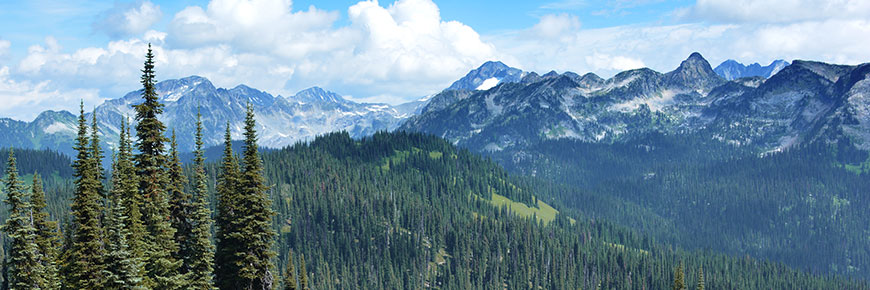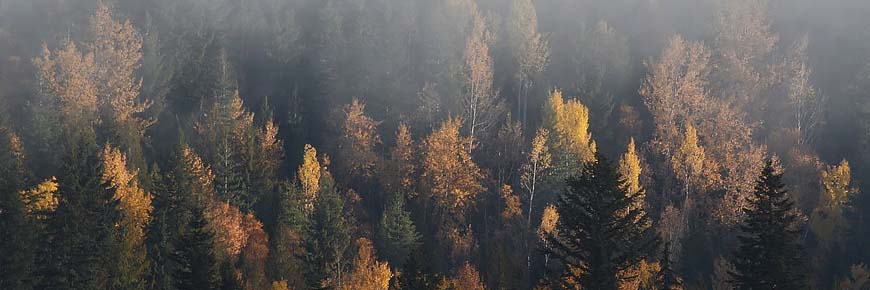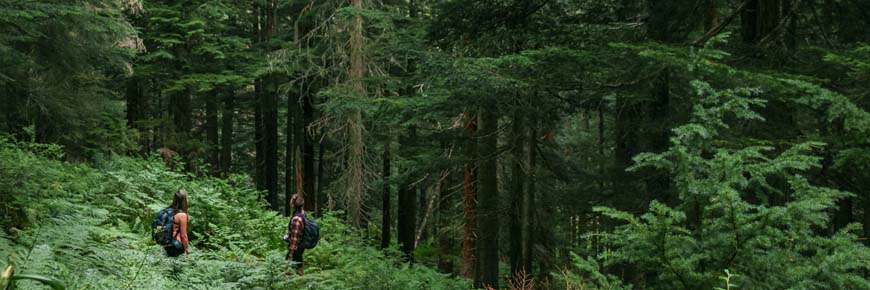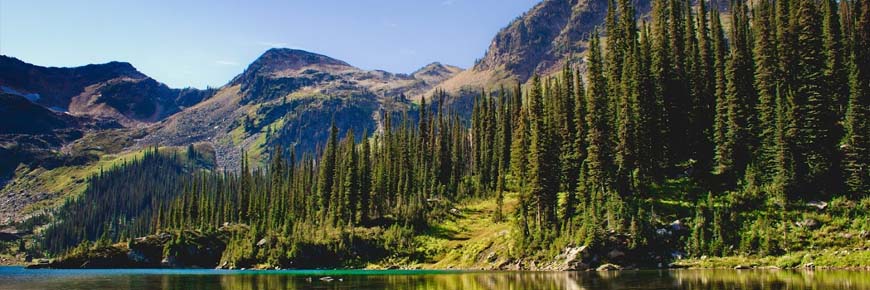
Trees
Glacier National Park
The Columbia Mountains are home to one of the only interior temperate rainforests in the world. Many trees in this area, such as the western red cedar, western hemlock, and mountain hemlock, are most commonly associated with wet coastal forests. From the valley bottom to mountain top, the types of forest and the species present change a great deal! Lower in the mountains you can barely see around the towering old-growth trees, while at high elevation the mountain vistas seem endless, with little to no tree cover. Some trees are widespread across different elevations, while others are limited to very specific environments. Click on the links below to find out more about some of the most common trees in the park and the environments where you will most likely find them.
A pine in decline: whitebark pine (Pinus albicaulis)
The whitebark pine grows at high elevation with twisted limbs and a sprawling crown. It has long needles in bundles of five. Its cones are hard and woody and contain large pine nuts that are consumed by small mammals, bears, and birds. The whitebark pine grows at treeline and differs from western white pine, which grows at lower elevations and has a tall straight trunk. However, both species have needles in clusters of five. Whitebark pine is an endangered species.
Related links
- Date modified :


